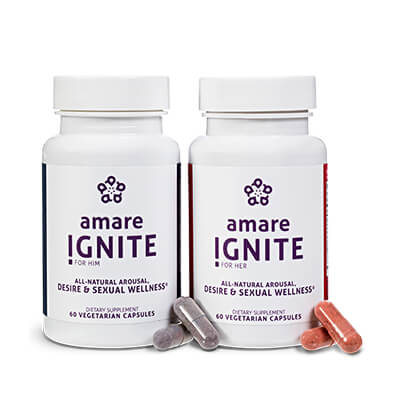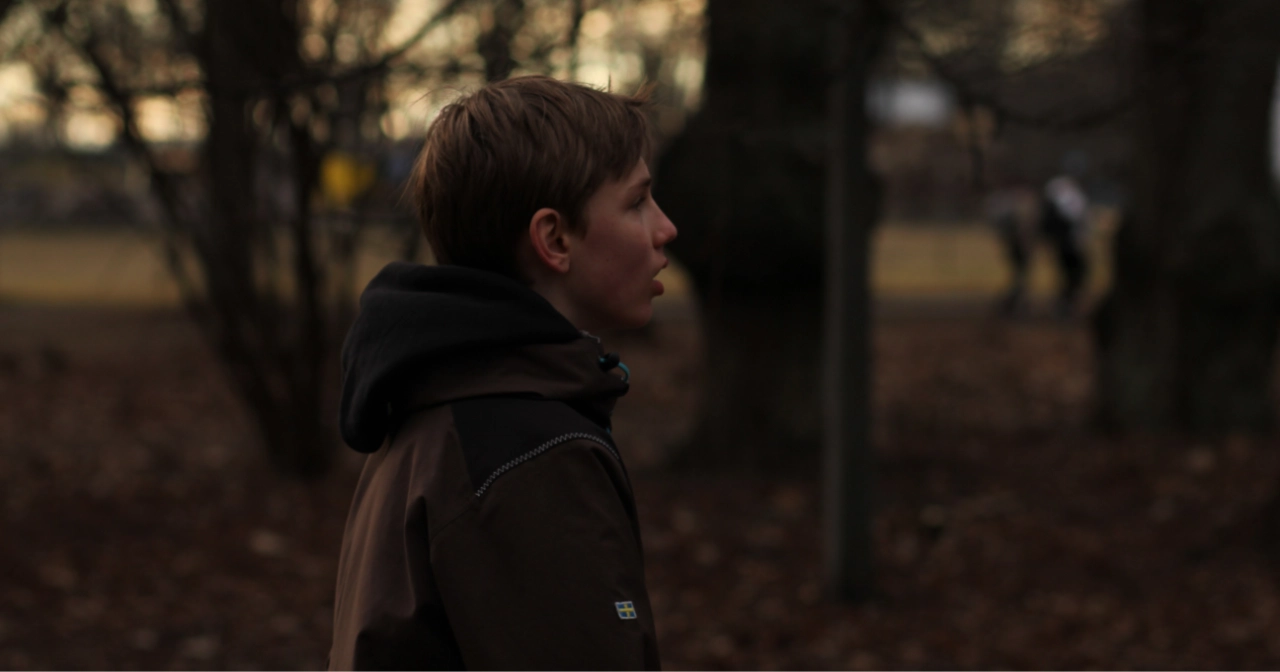One in five adolescent and young adult men is clinically deficient in testosterone. One in five!
How did this happen? What about the rest of the boys? How many of them are living with lower than optimal testosterone? What impact will this have on their mental and physical health? How will a society of men with low testosterone change the culture?
While today’s diets and lifestyles undermine the physiology of young and adult males, far-left ideologies look to undermine their psychology.
With such a significant percentage of adolescents and young adults missing out on the hormone that drives male characteristics, is it any wonder that so many kids feel lost and vulnerable to the messages driven by far-left activists?
Is this a perfect storm that could lead to serious health consequences for individual males and devastating consequences for their culture? And if so, is there some intention behind this, or are these issues just the result of coincidence?
I’ll share several facts in the following blog post and let you decide what to make of them.

Hormone Balance, Mental Wellness
Amare Ignite for Her and Ignite for Him are all-natural proprietary blends contains adaptogens, herbs and phytonutrients to support the balance of male and female sex hormones.
- Helps maintain normal hormone balance*
- Supports normal sexual arousal, desire, vitality*
- Supports blood flow*
- Helps stabilize mood*
- Supports overall reproductive health*
Men and More Men Have Low Testosterone
Average testosterone levels in men have consistently declined in recent decades.
Data from the National Health and Nutrition Examination Surveys (NHANES) shows that 20 percent of adolescent and young adult men are deficient in testosterone. At an age where these boys are supposed to transition from boys to men, testosterone suppression could lead to serious long-term physical and mental issues.
On top of that, low testosterone in middle-aged and older adults is an issue for the majority, not the minority.
Unfortunately, the conventional medicine community seems oblivious to these issues, and only pays attention to the most extreme cases of hypogonadism.
But any testosterone deficiency is a serious health problem. Maybe if there was more money to be made through treatment protocols, it would gain greater attention. Then again, maybe the money comes from treating the mental and physical health problems caused by low testosterone.
Effects of Low Testosterone
While testosterone does affect libido and muscle growth, it does much more. In fact, men with low testosterone can still have a healthy sex drive and the ability to build muscle, and men with strong libidos and the ability to build muscle can live with low testosterone.
Testosterone plays many other important roles in the body, so making an assumption based only on these two “symptoms” can be extremely detrimental to your mental and physical health.
Physical Effects
Low testosterone contributes to many preventable health problems in men, including:
- osteopenia (bone loss)
- sarcopenia (muscle loss)
- increased risk of death from all causes
- type II diabetes
- cardiovascular disease
- obesity
- elevated triglycerides, LDL cholesterol, and plasminogen
- insulin resistance
- erectile dysfunction
- gynecomastia
- decreased strength
- loss of morning erections
- increased risk of illness, including severe COVID-19 infection
Boys and young men with suppressed testosterone won’t experience normal physical development during puberty. They won’t gain muscle mass, may not grow as tall, and could develop adult lifestyle diseases like type II diabetes.
Middle-aged and older adults become more likely to succumb to disease or to die from all causes. Low testosterone limits their ability to recover from stress or to sustain intense and continued physical effort.
As bad as all of this is, the mental effects of low testosterone could be even worse.
Mental Effects
Testosterone makes men more competitive, motivated, assertive, courageous, and determined. Not surprisingly, suppressing testosterone in men develops the opposite characteristics.
Low testosterone makes men soft. It leads to the opposite characteristics of those described in the previous paragraph.
Low testosterone robs men of ambition, motivation, and courage. It leads them to be led more by their emotions than by logic and causes them to avoid competition and comparison, which makes them more accepting of mediocrity.
Low testosterone also increases the prevalence of anxiety and depression in men.
Hypogonadal men exhibit a significantly higher prevalence of anxiety disorders and major depressive disorder, compared to those with normal physiological levels of androgens. Similarly, men treated with androgen-depleting drugs for prostate cancer have a greater likelihood of developing an anxiety disorder or major depressive disorder
McHenry J, et al.
Think about that for a moment. By suppressing men’s testosterone levels, you make them more likely to succumb to anxiety and depression, less likely to persist in the face of opposition, and more likely to veer away from competitive environments.
Suppose you wanted to weaken a nation or destroy its ambition, willingness to fight for what’s right, or wipe out its drive for excellence. In that case, you could make significant inroads by sabotaging the testosterone levels of the men who are part of that country.
One of the most fascinating studies I’ve seen showed that testosterone therapy caused weakly-affiliated Democrats to lean more toward conservative or Republican political preferences.
When weakly affiliated Democrats received additional testosterone, the strength of their party fell by 12% (p=.01) and they reported 45% warmer feelings towards Republican candidates for president (p < 0.001). Our results demonstrate that testosterone induces a “red shift” among weakly-affiliated Democrats.
Zak P
Taken further, you could justifiably wonder how much of an effect our country’s plummeting testosterone levels has on the rise of far-left ideologies.
Cultural Effects
Imagine a society where men avoid the pain of pursuing excellence, the threats they could receive from speaking the truth, and the danger of protecting women and children. A society where men worry more about others who might hurt their feeling than those who actually hurt others.
While the psychological effects of today’s culture certainly influence males toward anti-Christian, anti-biological, anti-logical ideologies, the physiological effects of hormonal imbalances make them more likely to adopt those ideologies.
Taken together across a population, you can see how weak a nation or culture could become if you infect its men with low testosterone.
Causes
Genetics can play a role in hypogonadism, but the significant drop in testosterone across the culture is more a product of diet and lifestyle than one of genetics.
Endocrine Disrupting Chemicals (EDCs)
Because of their complicated-sounding name, endocrine disruptors are often overlooked as serious threats to human health. They can cause serious hormonal issues in both males and females, so parents must keep these compounds away from children.
You find endocrine disruptors in food, food containers, personal care products, and even in the air.
Some of the most common EDCs include:
- pesticides
- phthalates and bisphenol A (BPA) used to make plastic products
- triclosan and parabens in personal care products
- polychlorinated biphenyls (PCBs) in hydraulic and electronic devices
- perfluorinated compounds in clothes
- flame retardants
- solvents
- dioxins
Many EDCs have been banned but are still in our environment. However, companies still use BPA and phthalates.
Bisphenol A is used in the lining of water supply pipes, aluminum cans, reusable plastic food containers, dental sealants, thermal receipts, medical equipment, and building supplies.
Rodprasert W, et al.
You ingest BPA through some water supply pipes, aluminum cans, and reusable plastic food containers.
Do not eat from plastic containers, especially if they’re microwaved!
Read also: Anti-Androgens: Beware of Supplements That Suppress Testosterone.
Poor Diet
A diet that causes obesity is a diet likely to cause low testosterone. That includes regular consumption of processed fat and carbohydrate-rich foods and other calorie-rich, nutrient-poor foods and beverages.
Based on NHANES data, a group of researchers discovered a clear link between sugar-rich beverages and low testosterone in young men. The more sugar-sweetened beverages they drank, the more likely it was that they’d develop hypogonadism.
This observation should be especially concerning for parents, as children all too often drink sugary beverages like juice, tea, or soda.
In fact, fruit juice can be worse than soda, as it contains mainly fructose as the sugar source.
That said, other high-carb foods such as breakfast cereal, low-protein sandwiches, and snack bars aren’t much better, as the highly-processed carbs are converted to sugar anyway.
Worst of all, when children grow up on such foods, it becomes increasingly difficult to wean them off of the junk and get them to eat the foods that develop fit and healthy minds and bodies. The children become young adults who subsist on the same foods, which wreak havoc on their minds and bodies.
Oh, one more important dietary factor: meat. We’re constantly told to eat less of it, even though research shows it’s essential for physical and mental health, and its fat and cholesterol help support testosterone production.
Looking at the diets of today’s youth, it shouldn’t be a surprise that more and more males have low testosterone.
Read also: How Vitamin D Affects Testosterone Levels.
Sleep Debt
Men produce testosterone according to a circadian rhythm. It peaks in the morning, which is why something else stands up in the morning, too.
When boys and men get inadequate sleep, they don’t produce testosterone as they should.
Unfortunately, student-athletes are often at practice long after they should be in bed. Many stay up well past bedtime, glued to social media apps and video games even if they’re not at sports practice.
Insufficient Exercise
A lack of exercise by itself can compromise testosterone production. More often, though, the lack of physical activity contributes to obesity, and obese boys won’t secrete testosterone at levels as they should.
Read also: 9 Causes of Low Testosterone.
What’s a man to do?
It’s bad enough when grown men deal with low testosterone and become complacent, lazy, and indifferent about protecting those around them.
It’s even worse to see how common it is for adolescent boys to have low testosterone, and to understand the effects that could have when they’re supposed to go through puberty. Low testosterone is not normal, and should never be seen as such.
In most cases, choosing a better diet and lifestyle, and supplementing with hormone-supporting natural products is enough to radically alter one’s hormonal profile. But, sometimes it requires pharmaceuticals as well. With something as important as testosterone, it’s best to have a “whatever it takes” attitude to get it up to a healthy level.
Is the decline in testosterone across America and the West a coincidence, or part of an evil plan? I don’t know the answer, but I do know that hormonal deficits are contributing to society’s dysfunction, and those who realize this will take advantage of it.
The truth is that low testosterone might be the norm, but it isn’t normal.

Feel Better Fast. Guaranteed.
Energy+, EDGE, and MentaBiotics make up the Happy Juice supplement stack, with ingredients clinically proven to:
- decrease anxiousness scores by 55%
- decrease irritability scores by 60%
- decrease fatigue by 64%
- decrease anger 54%
- decrease tension by 45%
- decrease confusion by 43%
- decrease overall distress by 49%
- increase good bacteria by 70%
- decrease negative mood by 105%
- increase positive mood by 211%
Photo by John Kinnander on Unsplash
References
Chang, Wei-Hsiang, et al. “Phthalates Might Interfere with Testicular Function by Reducing Testosterone and Insulin-like Factor 3 Levels.” Human Reproduction (Oxford, England), vol. 30, no. 11, Nov. 2015, pp. 2658–70. PubMed, https://doi.org/10.1093/humrep/dev225.
Lokeshwar, Soum D., et al. “Decline in Serum Testosterone Levels Among Adolescent and Young Adult Men in the USA.” European Urology Focus, vol. 7, no. 4, July 2021, pp. 886–89. ScienceDirect, https://doi.org/10.1016/j.euf.2020.02.006.
Paul Zak, Claremont Graduate University. Testosterone Administration Induces A Red Shift in Democrats. Inter-university Consortium for Political and Social Research (ICPSR), 24 Nov. 2021. www.openicpsr.org, https://doi.org/10.3886/E155441V1.
Peterson, Mark D., et al. “Testosterone Deficiency, Weakness, and Multimorbidity in Men.” Scientific Reports, vol. 8, no. 1, Apr. 2018, p. 5897. PubMed, https://doi.org/10.1038/s41598-018-24347-6.
Rodprasert, Wiwat, et al. “Endocrine Disrupting Chemicals and Reproductive Health in Boys and Men.” Frontiers in Endocrinology, vol. 12, 2021. Frontiers, https://www.frontiersin.org/article/10.3389/fendo.2021.706532.
Whittaker, Joseph, and Kexin Wu. “Low-Fat Diets and Testosterone in Men: Systematic Review and Meta-Analysis of Intervention Studies.” The Journal of Steroid Biochemistry and Molecular Biology, vol. 210, June 2021, p. 105878. ScienceDirect, https://doi.org/10.1016/j.jsbmb.2021.105878.
Ye, Jiajie, et al. “Association between Serum Testosterone Levels and Body Composition among Men 20-59 Years of Age.” International Journal of Endocrinology, vol. 2021, 2021, p. 7523996. PubMed, https://doi.org/10.1155/2021/7523996.



